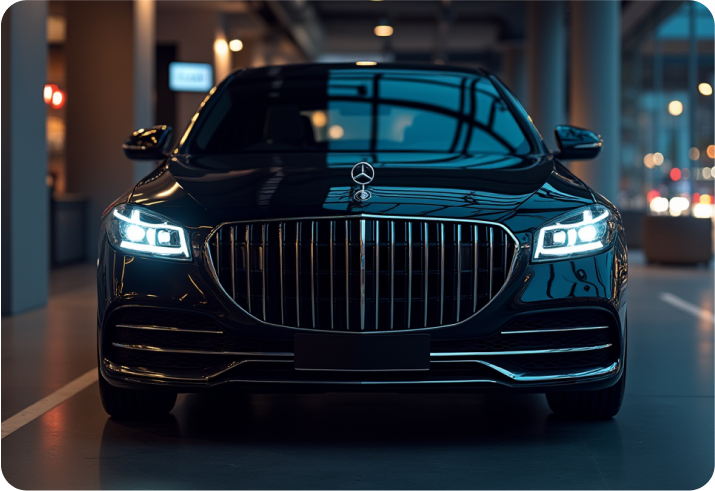How To Convert Your Car Into A Hybrid In India?

What Is A Hybrid Vehicle?
A hybrid electric vehicle cannot be charged by plugging in. The combustion engine and regenerative braking charge the battery. The electric motor is powered by both a gas-fueled motor and a battery-powered electric motor. The key benefits of hybridization are less gasoline and less carbon dioxide than comparable traditional petrol or diesel-powered cars.
Why Convert Car to Hybrid?
Hybrid cars are a new innovation, and this discovery comes with many benefits. Petroleum and diesel prices show no signs of subsidisation. With prices reaching Rs 100 per litre in some parts of the nation, it is becoming challenging for everyone to cope with the rising prices. EVs or electric vehicles cost one-tenth the price of a gasoline-guzzling automobile.
Besides saving money on fuel costs, you are also lowering maintenance costs. And not only this, but electric vehicles aid us in the battle against global warming. Electric cars have one major drawback, and it is the cost of buying one, which has always been a significant expense to individuals' pockets even in recent times. However, there is an alternative option for this problem: converting your existing conventional vehicle to a hybrid vehicle.
Let us have a look at the benefits that you will enjoy after converting your vehicle into a hybrid:-
Pocket-friendly
it saves a good amount on fuel and maintenance expenses.
Reuse
Retrofitting and refurbishing old vehicles is less environmentally destructive than purchasing a new one, but it is also considerably less expensive.
Auto start-stop
The engine is switched off when the car is stationary and restarted whenever the throttle is applied.
Environmentally friendly
A hybrid automobile is equipped with two engines, reducing fuel usage and increasing efficiency.
It can be used as an only electric vehicle- this can be done while moving at low speeds.
Better power assistance
The best thing is cars using this engine may retain and surpass power while consuming less gasoline.
Regenerative braking
As noticed in a conventional vehicle, braking is considered a loss of energy. While in hybrid cars, this lost energy can be contained and utilized back to either speed up or drive up the framework.
What Is The Process Of Installing a Hybrid Conversion Kit?
The answer to this is by retrofitting. Retrofitting a car involves replacing the gasoline engine with an electric drivetrain. Considering conventional cars, they just were not built to handle a battery. Therefore, integrating a hybrid car conversion kit will need a considerable amount of work and design.
Technicians will also have to rewire the car's electricals to the batteries rather than an alternator, set the system and control transmission units, and put the electric generator and high- and low-voltage circuits. Due to the age of these vehicles, additional structural support will be required to preserve the EV components.
Also Read: All you need to know about hybrid cars?
Cost Of Hybrid Conversion Kit.
If we had to quote the approximate cost for a hybrid conversion kit in India, that would be a price range of Rs five lakhs. Charges change eagerly for advancement and the model of the older vehicle.
Types Of Hybrid Cars And Their Workings
There are four significant kinds of hybrid vehicles, and each works somewhat in an unexpected way.
Series hybrid cars
The electric engine drives the wheels in a series crossover, while the gasoline engine drives a generator that generates energy and charges the battery.
Parallel hybrids-
The gasoline engine and the electric engine are linked to work together to drive the vehicle.
Series-parallel hybrids-
These are a blend of the initial two types. The vehicle can be driven absolutely by petroleum, electricity, or any combination.
Plug-in hybrid cars
These are the closest to pure EV cars. The power source can be charged both by the gasoline engine and by plugging it into an external source such as a charging station.
Also Read: Best hybrid cars in India
Best Hybrid Cars As of 2023
Picking the best hybrid vehicle for you relies upon many variables, including what sort of driving you do the vast majority of. Check out the best hybrid cars in India. Some of the best hybrid vehicles are:-
-
Lexus LS 500h
The Lexus LS 500h is a fancy car that's really comfortable to ride in. It's quiet inside and uses fuel very efficiently.
Can Buy: Second hand Lexus
-
Mercedes-Benz S-Class 580e
The Mercedes-Benz S-Class 580e is a super fancy sedan. It has a powerful hybrid engine, lots of space inside, and tons of really cool technology.
Can Buy: Second hand Mercedes cars
-
BMW 745e
The BMW 745e is a really cool and stylish car. It's really comfortable to ride in and has a quiet interior. It also saves a lot of fuel.
Can Buy: Second hand BMW cars
-
Audi A8 L 60 TFSI e
An incredibly posh vehicle is the Audi A8 L 60 TFSI e. It boasts a powerful hybrid engine that can run on both petrol and electricity. It is incredibly cosy inside and equipped with loads of interesting technology.
Can Buy: Second hand Audi cars
-
Porsche Panamera 4 E-Hybrid
Powerful and luxurious, the Porsche Panamera 4 E-Hybrid is a sedan. It boasts an enormous amount of incredible technology, a powerful hybrid engine that uses petrol and electricity, and a really elegant cabin.
Can Buy: Second hand Porsche car
Conclusion
As in the modern era, global warming is increasing drastically. Due to this, the government had stated that diesel automobiles older than ten years would be prohibited from operating in the capital provided their engines were replaced with entirely electric drivetrains. This shows the potential of the electric vehicle market in the country.
Therefore, converting your conventional car into a hybrid vehicle will not only save money and the environment but will also give a new life to your car. Get second hand luxury cars and learn about the benefits and drawbacks of hybrid cars, as well as how they differ from petrol and diesel cars.
FAQs For Hybrid Car Conversion
Is it possible to convert a petrol car to a hybrid in India?
Yes, it is possible to convert a petrol car to a hybrid in India. Converting a car to a hybrid involves integrating an electric motor and battery system alongside the existing internal combustion engine.
What are the benefits of converting a petrol car to a hybrid?
Converting a petrol car to a hybrid offers several benefits. Firstly, it improves fuel efficiency, leading to reduced fuel consumption and lower running costs. Secondly, it reduces carbon emissions, contributing to a greener and more sustainable environment. Additionally, hybrid cars often have regenerative braking, which recaptures energy and stores it in the battery, enhancing overall energy efficiency.
What are the drawbacks of converting a petrol car to a hybrid?
While there are benefits to converting a petrol car to a hybrid, there are also drawbacks to consider. One major drawback is the upfront cost of the conversion, which can be substantial. Depending on the car model and the complexity of the conversion, it may require significant investment. Additionally, the converted hybrid may not achieve the same level of performance as a factory-built hybrid, as the integration may not be as seamless.
What are the steps involved in converting a petrol car to a hybrid?
The process of converting a petrol car to a hybrid involves several steps. Firstly, the internal combustion engine needs to be assessed to determine its compatibility with the hybrid system. Next, the electric motor, battery pack, and associated components are installed. The car's existing systems, such as the transmission, fuel delivery, and cooling, may need modifications to accommodate the hybrid components. Finally, the electrical connections are made, and the hybrid system is integrated and calibrated.
Where can I find a qualified mechanic to convert my petrol car to a hybrid?
To find a qualified mechanic to convert your petrol car to a hybrid, you can start by researching reputable automotive workshops or garages that specialize in hybrid conversions. It is crucial to choose a mechanic with expertise in hybrid systems and the necessary certifications to ensure proper and safe conversion. Online directories, automotive forums, or seeking recommendations from hybrid car owners can also help in locating a qualified mechanic.
How much does it cost to convert a petrol car to a hybrid?
The cost of converting a petrol car to a hybrid can vary depending on multiple factors, including the car model, the complexity of the conversion, and the quality of components used. Generally, the cost can range from a few thousand dollars to tens of thousands of dollars. It is essential to obtain quotes from multiple mechanics and carefully consider the cost-benefit analysis before proceeding with the conversion.
Is it worth converting a petrol car to a hybrid?
Whether converting a petrol car to a hybrid is worth it depends on individual circumstances and preferences. Factors to consider include the cost of conversion, expected fuel savings over the car's remaining lifespan, environmental impact, availability of hybrid components and expertise in your region, and personal commitment to sustainability. Conducting a thorough cost-benefit analysis and weighing the long-term advantages and disadvantages will help in determining if the conversion is worth it for you.

 By Admin
By Admin









